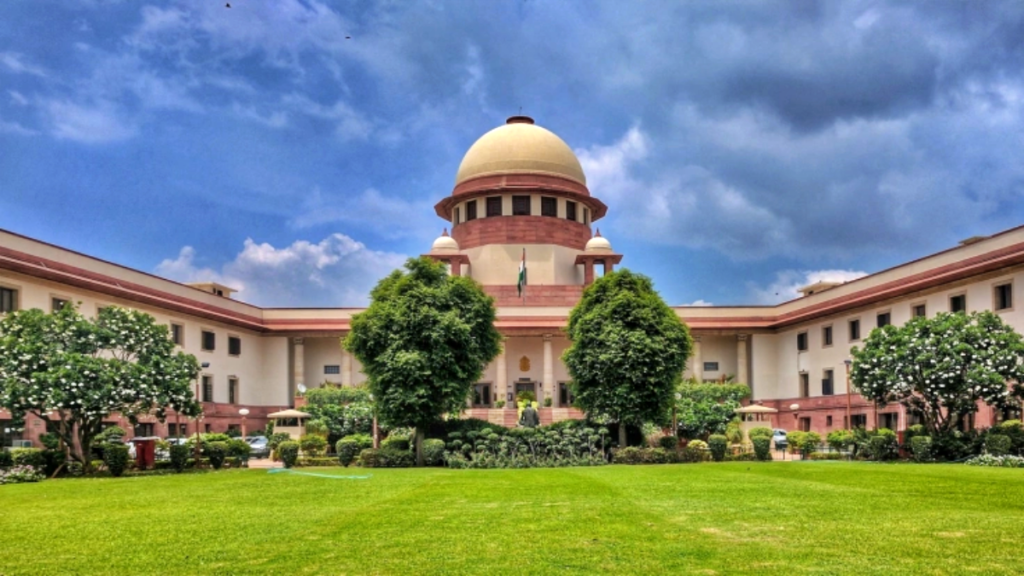
New Delhi: The Supreme Court on Wednesday delivered a sharp rebuke to the Punjab and Haryana governments over their failure to curb stubble burning, a key contributor to hazardous air pollution across North India, including Delhi. The top court, led by Justices Abhay Oka and Augustin George Masih, expressed its frustration at the apparent inaction, stating that if these governments were truly committed to environmental protection, they would have prosecuted violators.
“Where Are the Prosecutions?”: Supreme Court Criticizes Leniency
In a stern message to the Chief Secretary of Punjab, the court pointed out that although around 1,080 violators had been booked, fines were imposed on only 473 individuals. The court said, “You are sparing over 600 violators. For the past three years, you have been sending a clear message that there will be no real consequences for breaking the law.”
Haryana was also in the crosshairs as the court highlighted the selective registration of FIRs and the imposition of nominal fines. The justices warned that such leniency was setting a dangerous precedent, essentially allowing environmental harm to continue unchecked.
Centre Under Fire: “Environment Protection Act Has Become Toothless”
The Supreme Court also admonished the Centre for its failure to introduce stringent rules and enforcement mechanisms to tackle stubble burning on a broader scale. “The Environment Protection Act has become toothless,” the bench remarked, demanding that the Centre notify new rules within 10 days to penalize those engaging in the destructive practice. The court criticized the lack of a centralized system to ensure compliance, pointing out that this systemic gap has allowed air pollution to spiral out of control.
Commission for Air Quality Management (CAQM) Scolded for Inaction
The court did not spare the CAQM, the body responsible for monitoring and improving air quality, accusing it of inefficacy. The justices questioned why, for three years, the commission had only been issuing show-cause notices rather than enforcing strict penalties. The court noted that state officials defied orders, and the commission’s lack of action reflected a politically influenced approach rather than genuine environmental concern.
The court emphasized that if both the state governments and CAQM were serious about combating air pollution, decisive action would have been taken. Justice Oka remarked, “This is all political,” signaling frustration over the political dynamics preventing meaningful change.
False Statements and Dodged Accountability
The Punjab Chief Secretary was also reprimanded for allegedly instructing lawyers to submit false statements in court. This followed last week’s hearing, where the Supreme Court criticized both Haryana and Punjab for failing to prevent stubble burning by farmers. The deteriorating air quality in Delhi and other parts of North India has sparked a public health crisis, but accountability remains elusive.
CAQM Logs 1,800 Cases of Stubble Burning, Yet Problems Persist
In a fresh affidavit submitted to the Supreme Court, the CAQM reported 1,289 cases of stubble burning in Punjab and 601 in Haryana this year alone, despite the implementation of stricter rules. While the absenteeism of officials at committee meetings has decreased, the issue remains far from resolved.
The CAQM claimed it is now engaging with technical and agricultural experts to enhance its pollution-combating capabilities, but the court expressed skepticism, noting that enforcement is still severely lacking.
Court Demands Accountability from State Officials
During its previous hearing, the Supreme Court had directed the CAQM to take punitive action against officials from Haryana and Punjab for non-compliance with anti-stubble burning measures. Justice Abhay S. Oka remarked that Haryana’s affidavit was “full of non-compliance,” further ordering the Commission to take legal action against state officers and to reassign representatives from both Haryana and Punjab to the CAQM for more effective governance.

As the air quality across North India continues to decline, the Supreme Court’s rebuke has underscored the urgent need for stricter enforcement and accountability at both state and central levels. With public health on the line, the question remains whether political will can finally overcome years of inaction.







































